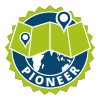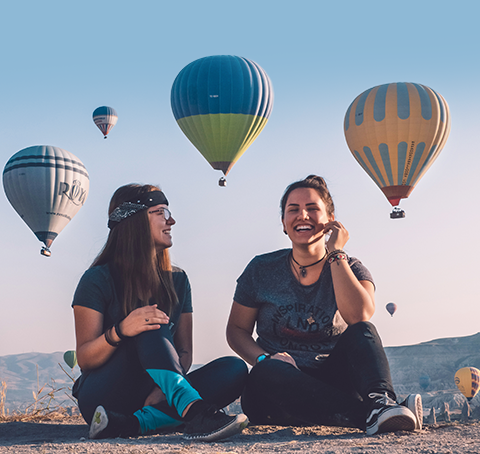Information du profil

Évaluation d'hôte
100 %

Last replied
28 févr. 2024

Taux de réponse
78.6 %
Usually responds ≤ 9 jours

Feedback
48

E-mail vérifié
Badges (2)


Séjour min. souhaité : Au moins trois semaines
Infos

Description
"Taste a different life."
We run a small educational non-profit organization with a permaculture farm. We offer people the chance to experience a simple life in connection with nature. We hope this will inspire and motivate people to become less dependent on ending resources.
Approximately every two weeks, we make sourdough bread in our wood-fired masonry oven.
We organise activities for the neighbourhood such as a pizza-party, at which we share our harvest and our bread and other products. Sometimes we organise crafts evenings.
In the permaculture garden, we try to build up fertile soil with organic material from the surrounding. Recent years have been very challenging due to climate exchanges. We try to grow most of the vegetables we eat, which means the cook must be creative from time to time. Surplus vegetables and fruits are brought to Poverello Ronse, where volunteers cook free meals for the poor.
The place is gradually built out by the volunteers, using low-tech ecological building techniques such as rocket-stove, clay from the land, wood from the forest, and homemade paint based on fresh cheese and flour (next to more traditional materials).
The project is ran by the owners of the place (Ine, Dirk, Hazel (15) and Sienna (13)), sometimes helped by some long-term volunteers. Hazel plays the piano and Sienna the flute. They will love to introduse you in folk dance. Dirk is the master of the trees and takes the lead in constructions work, while Ine is responsible for the garden, crafts, breadmaking, cooking and the administration. For a living, Dirk helps people to realise their 'simple living' building dreams as a handyman, while Ine studies medicine.
The 4 ha domain has forest, orchard (meadow), and agricultural land. There are sheep, dogs, cats, chickens, and an old horse.
We work together with a similar family-farm at 8km distance. One day, usually friday, our volunteers go to work at their place, another day in the beginning of the week, their volunteers come to our place.
Types d'aide et opportunités d'apprendre
Aide avec des éco-projets
Jardinage
Bricolage et construction
S’occuper des animaux
Aide dans une ferme
Cuisine/repas pour la famille
Aide à la maison
Entretien général

Objectifs de développement durable de l’ONU que cet hôte essaie d'atteindre

Echange culturel et opportunités d'apprendre
Most of the learning we have to offer is in the experience of everyday life close to nature.
Depending on the volunteers there are sometimes group activities in the afternoons or evenings, like playing games, making art or crafts, watching movies, dancing, workout, ...
Skills are taught as you need them, so the longer you stay, the more you can learn.
There is place, books, some tools and a lot of natural materials to do your own projects such as spinning, cutting a wooden spoon, make a basket, make nettle fibres, ...
Projets impliquant des enfants
Ce projet peut impliquer des enfants. Pour en savoir plus, consultez nos directives et conseils ici.

Aide
Right now, spring of 2024, the work in the garden is booming. We are drying the first herbs for tea. In may or june we will get in the hay. Meanwhile, we still have some land-scaping projects, such as digging a key-line waddy and we prepare from some construction work to adapt the main house to co-housing.
It's always great to have people that stay a bit longer (one month and longer) and can take up some responsibility such as making bread, take care of some of the animals, take responsibility in the garden (with supervision), organise the kitchen, the laundry, the bikes, the tools, help with communication or accountancy, teach short term volunteers the crafts you learned and make sure they find their way around the house ... If you stay longer, you can learn more and really 'land' in the rhythm of the land-life. We can also host long-term volunteers in the European ESC programme.
Also those who come for only a few weeks can help.
The garden always needs weeding. Waddy's and trenches need to be dug. Gathering and processing mulch is an ongoing job, just as splitting wood for fire and harvesting and processing fruits.
We are worried about the way the current generations are consuming all the abundance of this planet. Although we, by far, don't know the answer to this, we believe a closer contact to nature, a reduction of consumption and a fair distribution are essential. On the one hand, we try to live this life, in a world that is not (yet) made for it. On the other hand, we want to keep talking and searching for ways to the change of the society to a system that makes this kind of life the easier one. Also with this (searching and acting), volunteers are welcome to help.
Langues
Langues parlées
Anglais: Courant
Hollandais: CourantCet hôte propose un échange linguistique
Cet hôte a indiqué qu’il souhaitait faire partager sa propre langue ou en apprendre une nouvelle.
Contactez-le pour en savoir plus.
Hébergement
We have reconstructed a former barn. There's a spacey kitchen with a rocket stove, where most of the life goes on. If the 'polyvalent room' is not used for activities, it's available for volunteers. In summer, it's a cool, shady place that we also use for drying herbs.
The accommodation is simple. Take into account that this kind of life takes a bit more time than in a house in the city. Compost toilets need to be emptied and sawdust supplies need to be filled. It takes more time to light a wood stove than it takes to turn on the gas. Vegetables need to be harvested and cleaned before you can start preparing dinner. Laundry needs to be hung, water kettles and hot water bottles need to be filled (winter) or hot water needs to be hauled in from the solar boiler in the next building, etc.
If you want to try/share this kind of life for a while, this is your project. If not, it might be frustrating.
Food
Our food is:
- seasonal (so no cucumbers in April, eggs in December, or pumpkins in August),
- local (so no coffee, chocolate or peanut butter),
- organic,
- mostly vegetarian and low on milk products (but we have chickens for eggs and make sometimes yogurt from milk of a local farmer)
- we cook on the rocket stove as long as it's not too warm. In summer we use the electricity from the solar panels.
We mostly have unprocessed products. We buy some basics such as oil, grains and legumes and we grow fruit, veggies, and herbs. It’s up to volunteers to turn these into meals, bread spreads (jam, hummus, pesto, veggie pâté, etc.), and other tasty things like pickles or sauerkraut. We buy flour from a local mill using grain from local, organic farmers and bake sourdough bread with it.
Typically, there are oats and sourdough bread with home-made jam or (frozen) fruit for breakfast at eight, soup or salad and bread with home-made spreads for lunch, fruit or smoothy in the afternoon, and a cooked vegetarian meal for diner around six. In the season there are, of course, always fruits and berries to be picked for a snack at any time. In winter we snack the dried fruit from summer.
Washing
There’s an outdoor shower with hot (solar heated, so depending on availability) and cold rainwater. We don't use drinking water for the shower, so in dry summers with a lot of volunteers, showering is really 'functional'.
In winter, water is heated on the stove, and you have to wash from a bucket in the bath top.
Since 2024 we finished the log-house bath-house/sauna where water is heated on the rocket stove once per week.
Heating
All heating is done with home-made rocket-mass-wood stoves. Usually, only the kitchen is heated. The sleeping area is not. We have plenty of blankets and warm water bottles for wintertime.
In winter, the stove in the kitchen is heated once or twice per day for cooking and/or warmth. During this time it is possible to heat water for drinking and washing, which then can also be put into thermoses for later use.
When it’s warm outside and the sun is shining the solar cooker and electricity can also be used to heat water (summer).
Sleeping
We have four separate rooms and a dormitory with two bunk beds. Beds, sheets, pillows and blankets are available. Volunteers can bring a tent, if they want.
Transport
The place is easily reached with public transport. Every hour, a 10 min walk will take you to a bus stop, which will take you to a train station, which can take you directly to Brussels and Gent. Please don't come by car. There are some bikes, but they are only borrowed to longer term volunteers that are able to take care of them or want to learn that.
Other things
- We only invite non-smokers.
- There is wifi and a laptop at your disposition.
- Compost toilets only.
Autres infos...
The Flemish Ardennes is one of the most beautiful regions in Flanders, with a hilly and often surprising landscape.
At four kilometres, there is a small town with shops, a swimming pool and a library.
Informations complémentaires

Accès Internet

Accès Internet limité

Nous avons des animaux

Nous sommes fumeurs

Familles bienvenues

Possibilité d’accueillir les digital nomads
We have a decent internet connection and some very basic separate rooms. In winter, only the shared rooms are heated. We expect all people to participate in the life of the land, but a combination with personal projects is possible.

Espace pour garer des vans
Van can be any size.

Combien de volontaires pouvez-vous accueillir ?
Plus de 2

Nombre d'heures attendues
5 hours a day, 5 days a week
Feedback (34)
Feedback
Ce sont des évaluations supplémentaires en option lorsque les membres laissent un feedback. La note moyenne pour chaque option est affichée.
Exactitude du profil:
(5.0)
Échange culturel:
(4.8)
Communication:
(4.8)
We came, we saw, we played, ..
..we watered plants, baked bread, helped with the pizza parties, went iceskating, swimming, ate hundreds of apples, dried plums, shared interests in Momo's, cooked on the rocketstove, played Dixit, braided our hair, watched Harry Potter ..
We can go on and on..
Not sure how long we would stay - we… read more
I also met other former volunteers (Jonathan, Yannick, Helen and Cairen).
I won't forget how well I was welcome, in a warm atmosphere, with some good food and smiling people.
Yes I chopped quite a lot of wood, you were right Dirk, it has become addictive there… read more
Through the 2 months that I spent there, I got so many experiences, discussions, discoveries, that deeply affected… read more
He is a really nice volunteer and became a good friend.
We will be happy to welcome him back at any time.
Have a save trip and see you hopefully again.
Big hug from all of us.
The work varied from weeding, planting, scytheing, chopping wood, drying herbs, processing fruits and vegetables for the winter,... but there is also room for own initiatives.
It was interesting to live with all the different people; families,… read more
If you are interested and ask the people, you can learn a lot there!
We had wonderful conversations with Hélène and Cairan, the longterm volunteer couple living there, they received us gently and showed us the place. They have two little children: Nisha and Rumi. I had fun and… read more
No matter who you are, I want you to try this place out. Love the gym and need to work on your deadlift? There are brambles in the forest that need to be pulled out. Those needing more than 1500N to pull out I left for you ;) Want to cook for larger groups? They are very welcoming to let you try. Want to learn baking? This… read more
The work we did was varied and interesting. The work was open for self-direction just like it says in their profile, but perhaps moreso during our two-week stay than expected. There was a… read more
The work was heavy, but I liked being busy for a good cause. The food was delicious and things were nicely organized. The place was filled with wonderful, welcoming people. We had a lot of fun and it felt like family.
I also met a girl from Germany here who came with me to the… read more
This is very special to me. Being with Ine, Dirk, Hazel, Sienna and now also Kuba makes me happy and lets me grow. I learned many things there like spoonmaking, cobbing, gardening, ...
Being there inspires me a lot to do things.
Thank you for having this beautiful place and making… read more
I learnt a lot about living sustainably and how to use what's grown on the farm. Making the bread was really fun and smells delicious!
Hazel and Sienna are really cute and Hazel was great at teaching me Dutch words (even if she did laugh at how I pronounced things!)
Ine showed me… read more
Things I did :
- Looked after chickens (feeding in morning / evening, collecting eggs, repairing fences, occasionally chasing one back into the coop)
- Collecting, moving and de-barking felled logs so that a new shelter could be built
- Helping… read more
Thanks ...
***
I stayed with Ine and Dirk for 5 weeks and i would have stayed longer if it was not one personal interest that drove me away. They are very warm, friendly and welcoming, i felt comfortable the very moment i entered their house.
The social environment is peaceful and happy, with two joyful girls running around and… read more
A group of beautiful, interesting people, with good energies and a true interest in permaculture, which live in probably… read more





























